By Bashar Abubakar and Chibuike Alagboso (Lead Writers)
Close to a hundred community members — men and women of various age groups — had assembled under two tents in front of the village head’s residence in Yakasai village, Soba Local Government Area (LGA) of Kaduna State. A woman in the community had died while giving birth, and the community leader with support from the officer in charge of the Yakasai Primary Health Centre (PHC) and a staff of the Population and Reproductive Health Initiative (PRHI), convened a meeting to conduct a social autopsy.
The deceased woman had received antenatal care in the PHC but gave birth at home. As was reported, she had complained of pain in her abdomen a short while after delivery and died a few hours later. Two days after her death, the community Maternal and Perinatal Death Surveillance and Response (cMPDSR) committee, consisting of the officer in charge of the PHC, the Yakasai community women leader and Ward Development Committee (WDC) chairman paid a condolence visit to her family and conducted a verbal autopsy. They also informed them of plans to schedule the social autopsy.
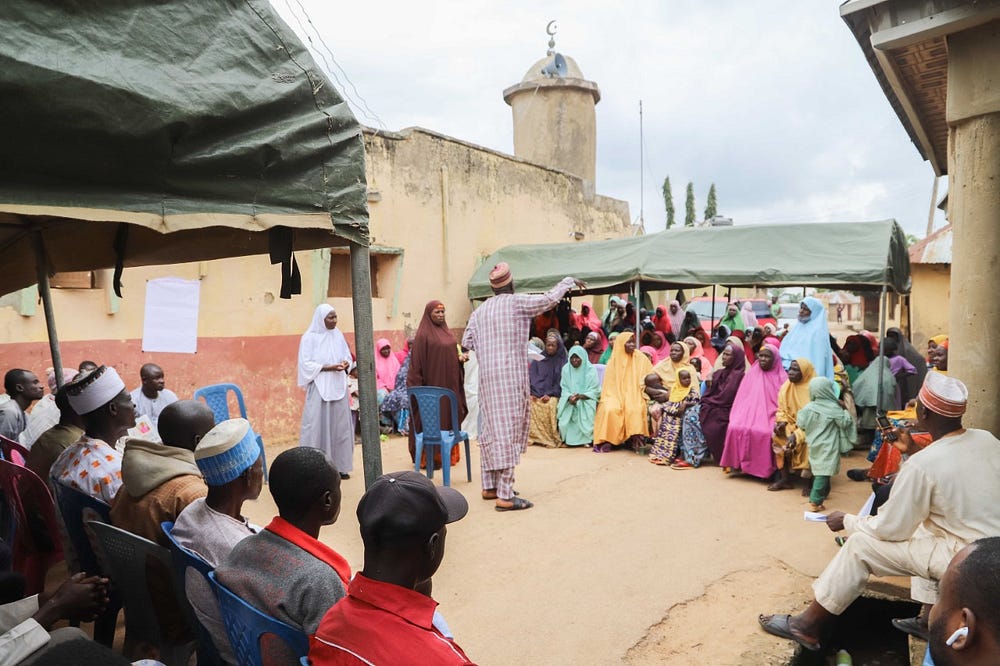
Identifying the causes of maternal deaths in communities
Maternal and Perinatal Death Surveillance and Response (MPDSR) is an inquiry into the circumstances surrounding each maternal and perinatal death, including any preventable breakdown in care, whether from the household to the health facility. This is usually done at the facility level. When the community is involved, it is referred to as cMPDSR and involves social and verbal autopsies during which community members deliberate on the possible cultural, social and health factors that may have contributed to a maternal or child death. They discuss ways to eliminate them and prevent future occurrences.
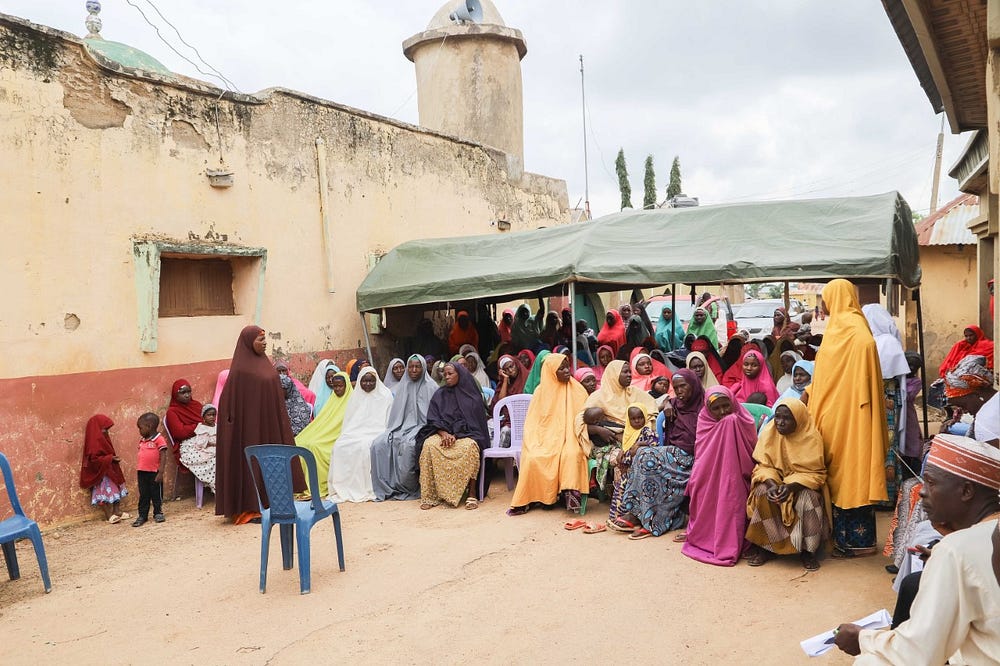
According to the World Health Organization (WHO), maternal mortality is higher among women living in rural communities. Delivery without skilled birth attendants is a major cause especially in states like Kaduna where 82.3% of women give birth at home without their services. According to the 2018 Nigeria Demographic and Health Survey (NDHS), 43% of women in Nigeria give birth with the assistance of a skilled birth attendant and there are variations in this figure across the country.
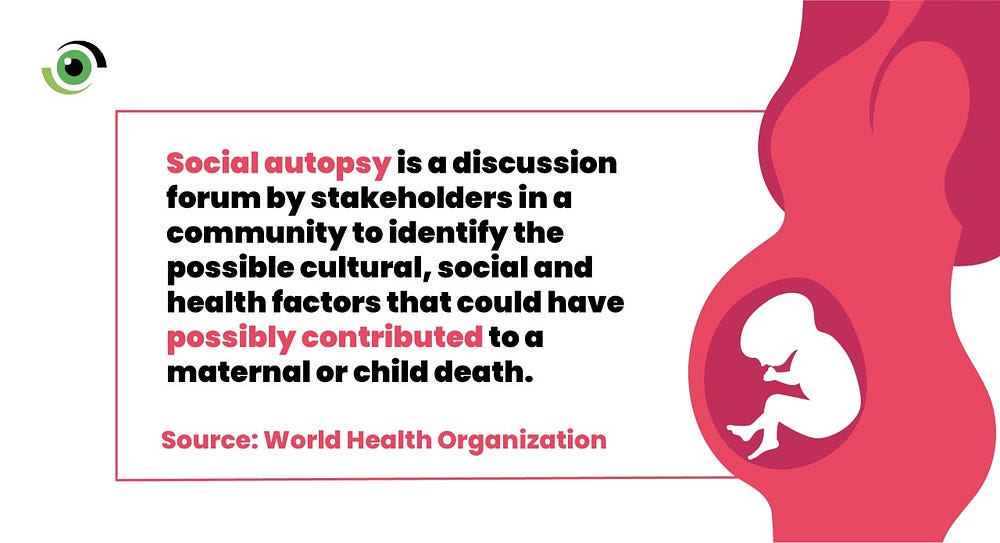
Social autopsies in such communities therefore serve as an avenue for, not just identifying and discussing the cause of death, but for creating awareness and sensitisation to discourage practices that contribute to maternal and child deaths, which include home delivery.
A local initiative in response to high maternal deaths
The social autopsy in Yakasai village is part of a cMPDSR initiative being implemented in Soba LGA by PRHI in collaboration with the Kaduna State Ministry of Health and support from Options Consultancy Services managed Evidence for Action-(E4A) MamaYe project. According to Dr. Ado Zakari Mohammed, director of medical services at the Kaduna State Ministry of Health, Soba LGA was selected to pilot the cMPDSR in the state due to its high maternal and child health indices, based on data available to the state government.
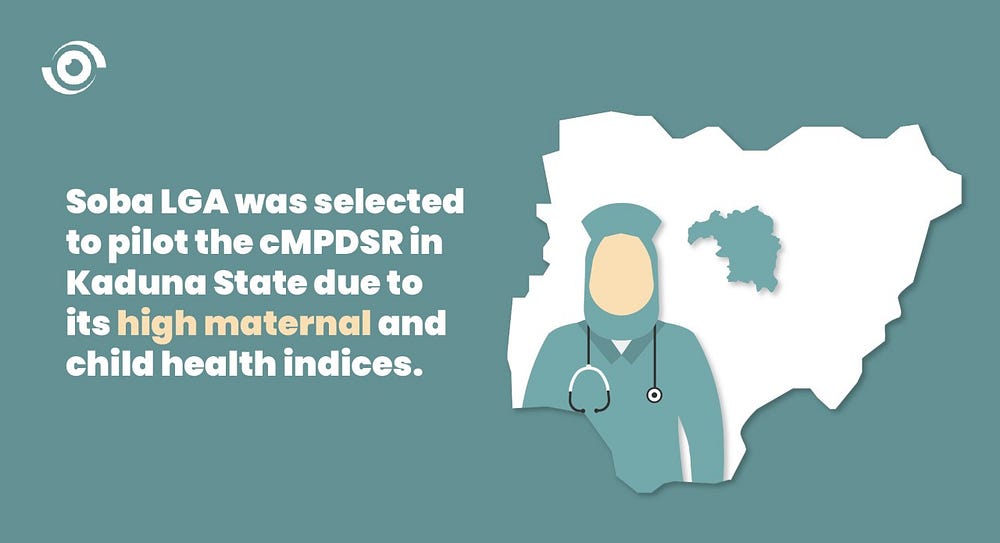
Dr. Mohammed, who is also chairman of the state’s MPDSR committee revealed that since the beginning of the pilot in January 2022, the health seeking behaviour of people in Soba LGA has changed, and there has been a tremendous increase in antenatal attendance and health facility delivery. He added that there is now an informal law in almost all the villages in Soba LGA that mandates husbands to allow their wives to attend antenatal appointments and make provision for them to be taken to health facilities as soon as they are about to give birth. cMPDSR committees, set up across villages in the LGA, have helped coordinate the process. “Health seeking behaviours have changed, so maternal deaths have reduced,” he emphasised.
Social, cultural, and economic undertones
To start off discussions at the Yakasai village social autopsy, family members of the deceased narrated the events leading to her death. Further conversations ensued which resulted in the unanimous agreement that ‘giving birth at home’ was the root cause of death. The women at the meeting agreed, citing economic and cultural factors as major reasons why women in the community decide to give birth at home.
Labiba Labaran, who lost her sister during childbirth four months ago, said some women who access antenatal care in Yakasai PHC live in far-away communities, and their families are sometimes unable to handle the cost and hassle of transporting them to the health facility. There is also the lack of female health workers to take delivery, especially at night. This discourages women from visiting the PHC when in labour as they do not feel comfortable with male health workers taking delivery. A third issue is that sometimes, a relative, mostly a mother in-law, might prefer to have the woman give birth at home with a traditional birth attendant, if necessary. This was the case for the woman whose death was being autopsied.
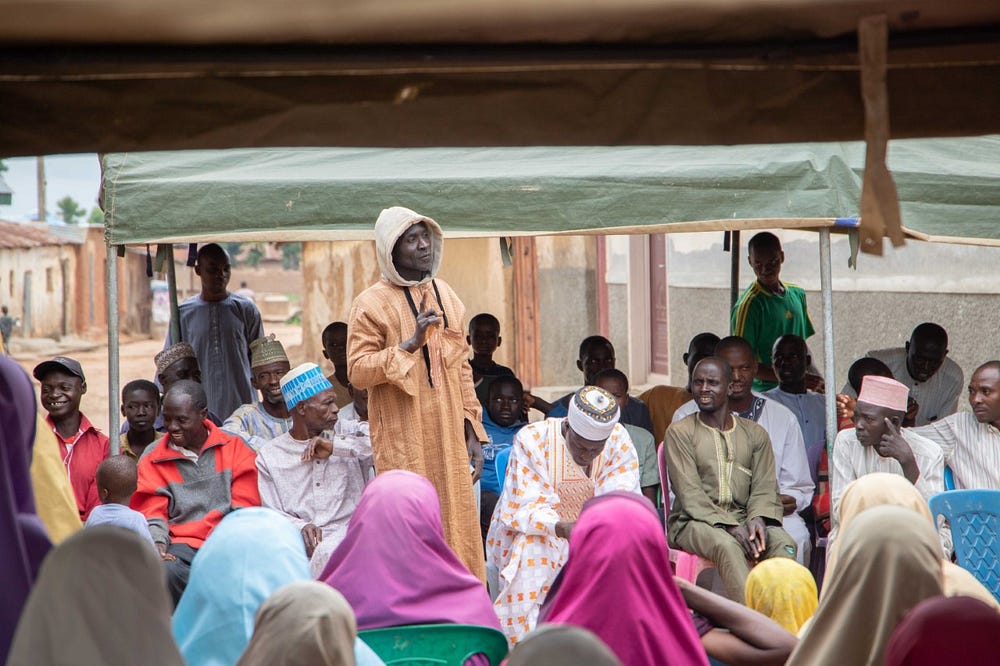
Findings from the community-informed maternal death review conducted in 2020 by a consortium that included Nigeria Health Watch, across six states in Nigeria also highlighted the socio-economic and cultural barriers that prevent women from giving birth in health facilities. Recommendations pushed for greater state and community leadership to implement an accountability mechanism in communities that ensured maternal deaths were documented, with a view to avoid further preventable deaths.
Addressing root causes
The village head, Muhammad Adamu moderated the conversation around each of the issues identified, encouraging community members to proffer solutions. At the end of the session, Adamu mandated all men to make adequate funds available ahead of their wives’ due dates, encouraging the women to report defaulting husbands to him as his door was always open to them.
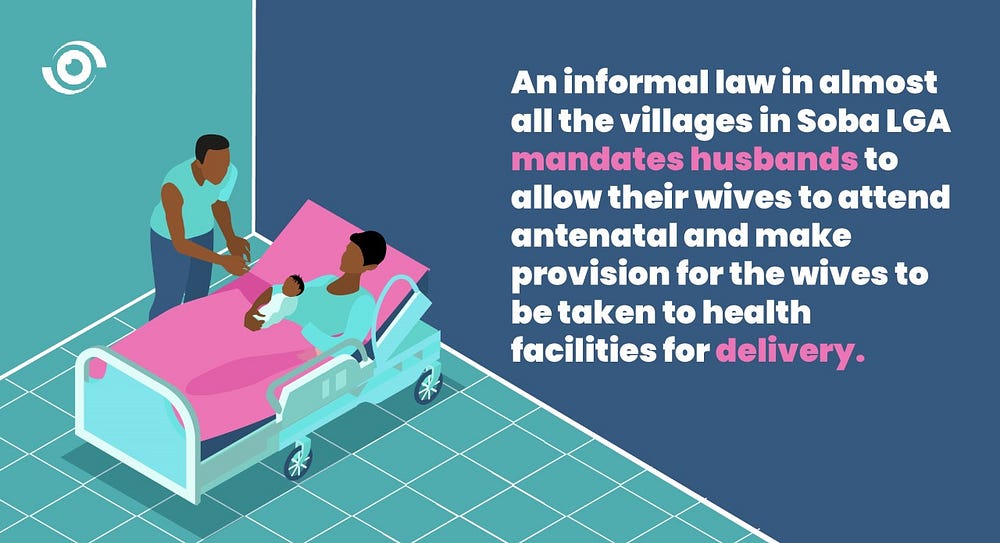
Adamu also recognised the fact that it is culturally insensitive for a male health worker to attend to a woman in labour but urged the women to overlook it and visit the health facility once they go into labour, as it is a matter of life and death. He committed to working with the WDC and the LGA health secretariate on the possibility of posting more female health workers to the PHC.
Although there is a long-held practice of women giving birth at home with the help of traditional birth attendants, Adamu ruled that every woman in the village should be taken to the PHC once she is in labour.
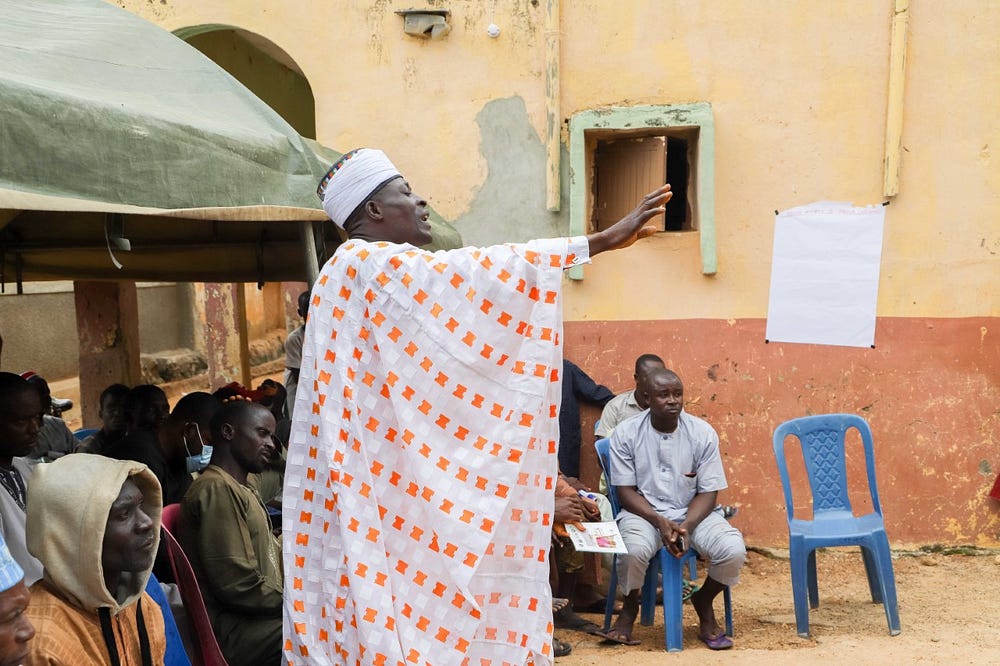
Beyond the community
According to Professor Clara Ejembi, a PRHI Board member, though the state already has a maternal death surveillance system in place, the community component was missing as it focused mostly on facilities. The cMPDSR project bridged this gap and continues to improve trust between communities and health facilities said Dr Moshood Salawu, Senior MPDSR Advisor at E4A-MamaYe. He added that although the project was expected to be implemented for 12 months, it ran for only six months as “we were faced with some challenges that delayed the main implementation of activities”.
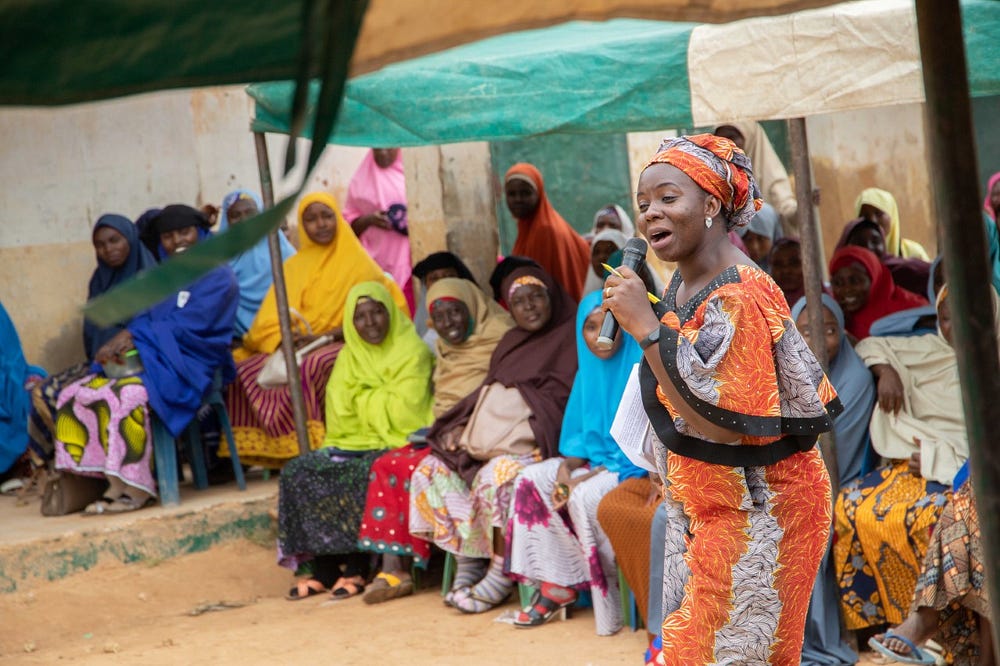
First, E4A-MamaYe needed to develop cMPDSR tools from scratch, especially the social and verbal autopsy tools, as these documents were not available in the national guidelines. Next, came the development of training materials for ‘train the trainers’ training conducted for the state MPDSR committee. Finally, there were some administrative delays before fully onboarding PRHI. “So, with all these processes, we were left with six months for the actual implementation activities. However, these are lessons learnt that we would take forward for other projects” Moshood said.
Findings from the project have provided vital information which Professor Ejembi believes can help inform how the national MPDSR guideline is structured as she recently shared findings from their work with stakeholders working across Nigeria. However, she thinks there’s still more to learn though the project ended in June 2022. The good news is that plans are in the works to scale up the project.
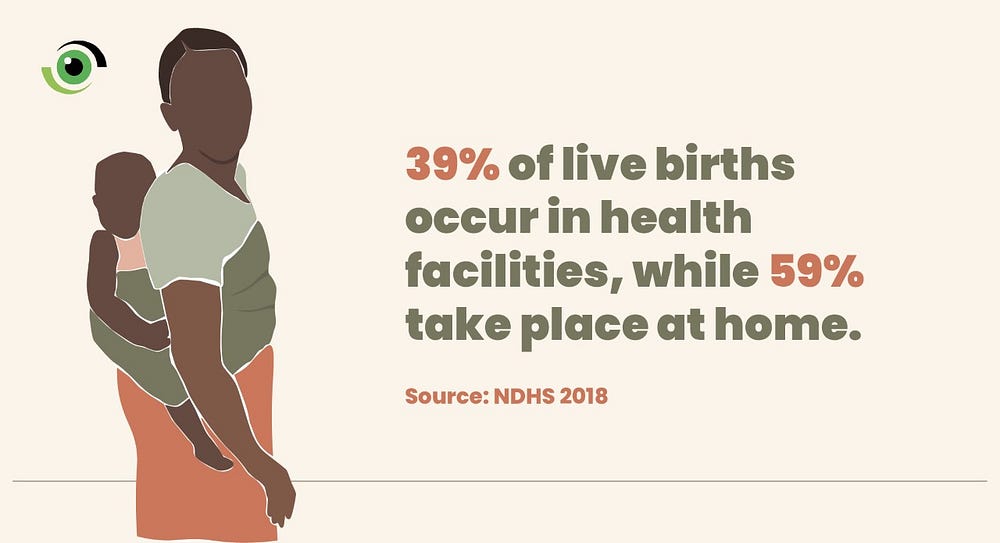
According to the Nigeria Demographic Health Survey (NDHS) 2018, only a mere 39% of live births occur in health facilities, with 59% of births taking place at home. Establishing cMPDSR committees that go beyond auditing maternal deaths to identifying and addressing the social factors behind them is an excellent way to improve the percentage of live births in health facilities. However, for this initiative to achieve its desired result, all actors must play their part. Development partners to provide tailored solutions like the cMPDSR initiative. Host communities and health departments to own it like Yakassai community members have done with the verbal and social autopsies. Government to ensure that there is one fully functional private or public PHC in every ward in Nigeria, as outlined in the Basic health care Provision Fund guidelines.


